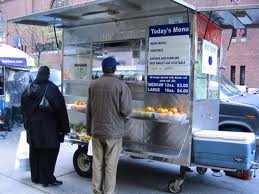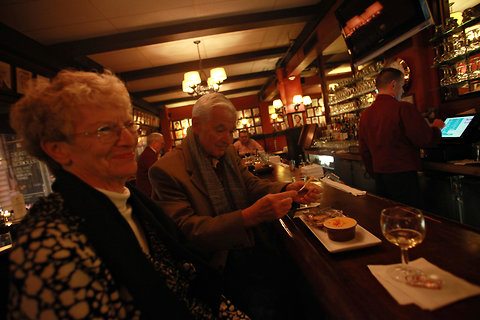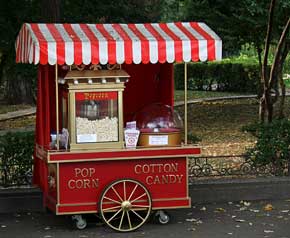The New York City Council will announce Wednesday that nearly 1,000 restaurant operators have responded, after only two weeks, to a Web survey seeking their views about the city health department’s new letter-grading system for food safety.
As of Tuesday, 965 responses had been submitted — a sign “that we’ve hit a nerve,” said Christine C. Quinn, the Council speaker. “We’re getting surveys from every borough, and from very diverse neighborhoods.”
Opinions expressed in the responses will be revealed in Council hearings scheduled for late February or early March. Responding to what the speaker said was “a wave of complaints” about .jpg) letter grading, the Council posted a questionnaire on its Web site (www.council.nyc.gov) asking the city’s 24,000 restaurateurs to share information about their experiences with inspectors and administrative tribunals, and the cost of fines and inspection consultants.
letter grading, the Council posted a questionnaire on its Web site (www.council.nyc.gov) asking the city’s 24,000 restaurateurs to share information about their experiences with inspectors and administrative tribunals, and the cost of fines and inspection consultants.
Susan Craig, a department spokeswoman, said a survey last summer showed that 90 percent of New Yorkers approved of letter grading, and questioned the methodology and the validity of the Council questionnaire, which asks for but does not require the names of respondents. “The survey has no method of confirming that a participant is actually a restaurant, nor does it ensure that an entrant fills out only one submission,” Ms. Craig said. “The results — good or bad — will have negligible value.”
But Zoe Tobin, a Council spokeswoman, responded that “there is a vetting system in place” that checks for duplication and fraud. “We felt that anonymity was important to encourage candid responses,” she said.
A survey response rate of 4.2 per cent sorta sucks and isn’t representative of much.

 seven years and never told me that,” she said. “They gave me the option to pay a $200 fine or fight it, but if I lose, the fine goes to $1,000.”
seven years and never told me that,” she said. “They gave me the option to pay a $200 fine or fight it, but if I lose, the fine goes to $1,000.”  Since then, each cat has been succeeded by another with the same name, Hamlet for the males, Matilda for the females.
Since then, each cat has been succeeded by another with the same name, Hamlet for the males, Matilda for the females. .jpg) implemented fairly. The council will also examine whether food trucks and street carts should be required to post grades, mirroring what brick-and-mortar restaurants must do now.
implemented fairly. The council will also examine whether food trucks and street carts should be required to post grades, mirroring what brick-and-mortar restaurants must do now. snack — explained Capt. Brian Mullen, commanding officer of the 33rd Precinct.
snack — explained Capt. Brian Mullen, commanding officer of the 33rd Precinct. bar, too.
bar, too. be left out” for the next person who comes in.
be left out” for the next person who comes in..jpg) incorrectly.
incorrectly. “6” to form a sloppy “8,” according to the Health Department.
“6” to form a sloppy “8,” according to the Health Department. laws," he said.
laws," he said.  that come in contact with food at the 181 W. 10th St. restaurant, according to the city’s website.
that come in contact with food at the 181 W. 10th St. restaurant, according to the city’s website.